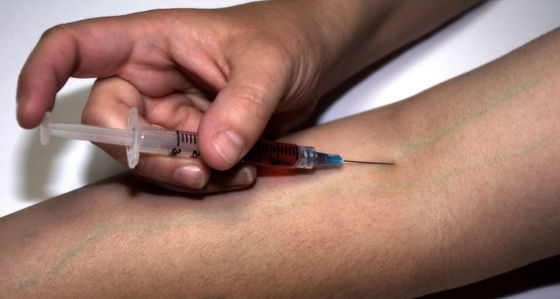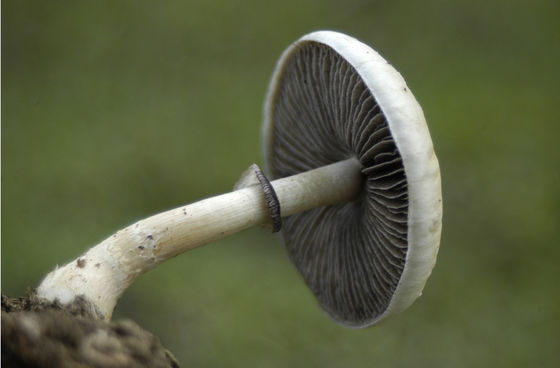Magic mushroom grows in the blood of a man who has been intravenously injected with 'Magic Mushroom Tea'

By
An incident occurred in which magic mushrooms grew in the blood of a man who was intravenously injected with magic mushrooms with hallucinogenic effects and were transported by emergency due to organ failure.
A “trip” to the ICU: intravenous injection of psilocybin --ScienceDirect
https://www.sciencedirect.com/science/article/pii/S266729602030015X
'Magic mushrooms' grow in man's blood after injection with shroom tea | Live Science
https://www.livescience.com/magic-mushroom-injection-case-report.html
Magic mushroom is a general term for mushrooms containing alkaloid chemicals such as psilocybin and psilocin that cause intense hallucinogenic effects. Magic mushrooms that grow naturally in Japan include Panaeolus papilata , Laughing gym mushroom, and Psilocybe chinensis .
These magic mushrooms are usually taken orally as food or drink. However, a 30-year-old American man had his bipolar disorder (manic depression) after reading an online article that 'hallucinogens such as LSD and magic mushrooms may have therapeutic effects on depression.' ) And an original treatment for opioid addiction, and tried 'intravenous injection' of magic mushroom extract.

This man boiled down
The man was taken to the emergency department of the hospital by his family, but was in a state of extreme confusion and was unable to answer the interview normally. As a result of the examination, there were signs of dysfunction in multiple organs such as the liver and kidneys, so he was taken to the intensive care unit. Further blood tests revealed that not only was the bacterial infection of Brevibacillus, which is related to Bacillus subtilis, and the fungal infection of Magic mushroom, but also the growth of Magic mushroom in the blood. did.

By Costa PPPR
Men were given antibiotics and antifungal drugs, but fluid buildup in the alveoli caused acute respiratory failure and required ventilator support. The man was finally discharged from the intensive care unit on the 8th and in the general ward on the 14th for a total of 22 days. After that, the patient was switched to follow-up with continued administration of antibiotics and antifungal drugs.
In recent years, attention has been focused on the depression-improving effect of magic mushrooms, and in November 2020, the state of Oregon in the United States has seen a move to legalize psilocybin, which is a hallucinogenic component of magic mushrooms . However, in most medical studies of magic mushrooms, they are taken orally as tablets, and even if intravenous injection is selected, only the active ingredient psilocybin is administered, so 'magic mushroom extract is injected intravenously. There is no such thing.
The following articles describe the latest research on the depression-improving effects of Magic Mushrooms.
Clinical trials show that the hallucinogenic component of Magic Mushrooms 'significantly improves depression with just one or two doses' --GIGAZINE

Related Posts:
in Note, Posted by darkhorse_log







